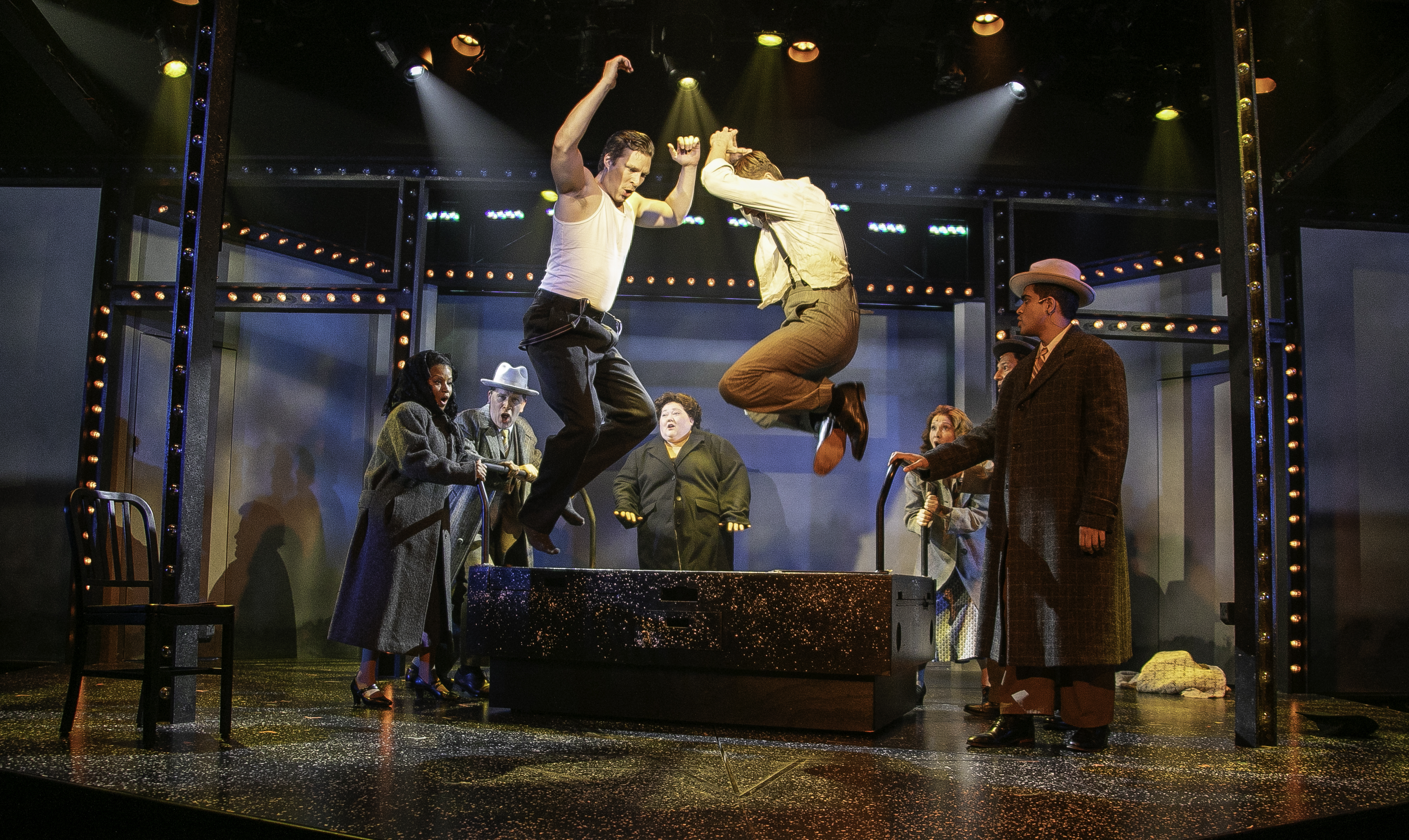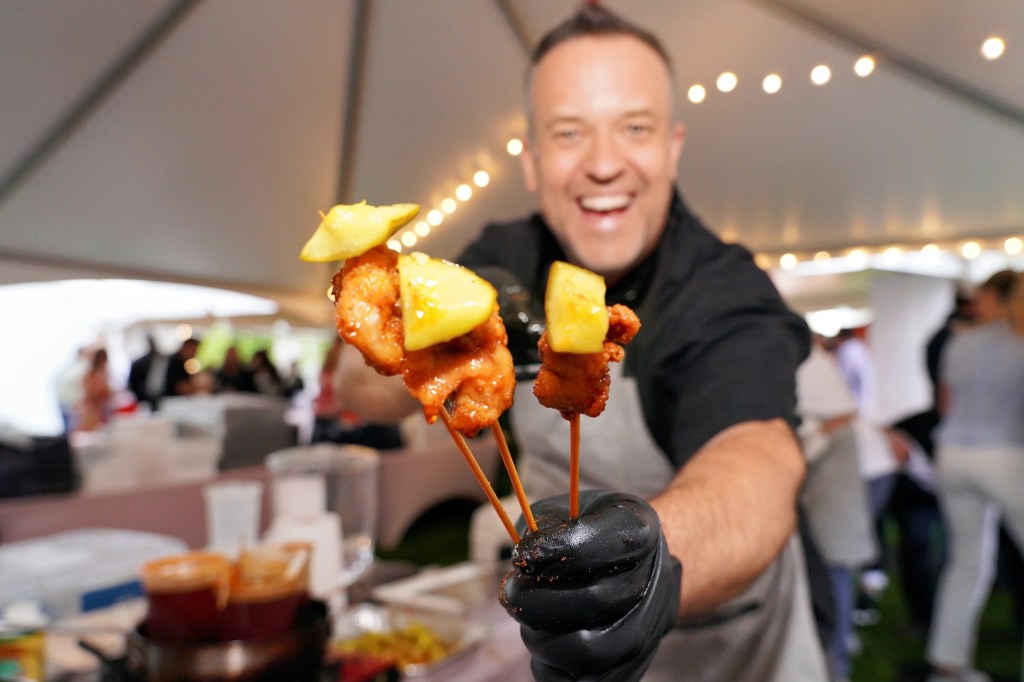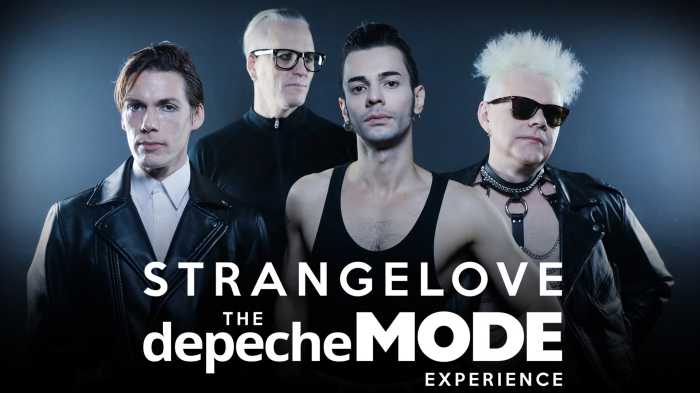Bay Street Theater's Bonnie & Clyde: The Musical Delivers a Rollicking Outlaw Story Steeped in Americana

Bay Street Theater’s raucous and affecting new production of Bonnie & Clyde: The Musical feels almost too big for the intimate confines of the venue.
While it certainly has an inner life – a dark, fast-beating heart filled with passion and mayhem – almost everything about this Bonnie & Clyde is outsized.
Director Scott Schwartz clearly understands the material. Schwartz, who is also Bay Street’s Artistic Director, has shown in past productions that he knows how to use every inch of space the diminutive theater has to offer. In Bonnie & Clyde, he pushes the physics of the room to their breaking point. Cast members spend large chunks of the show so far upstage that they’re actually in the front row, where they belt out vocals, deliver dialogue or sometimes just cool their heels with their backs to the audience. If not for their Depression-era costumes, they could almost pass for paying customers – until they start sprinting up and down the aisles with their guns drawn.
The scale and scope of this show could easily play in Broadway’s bigger houses, but there’s something particularly powerful about seeing a production like this on a small stage. Thanks to Schwartz, Scenic Designer Anna Louizos, Music Supervisor Patrick Sulken, Music Director Noah Teplin, Choreographer Emily Maltby and the rest of Bay Street’s creative team, the theater positively vibrates with intensity from every seat in the house.
Steeped as it is in American folklore, most people know at least the basic contours of the story: Clyde Barrow, a young outlaw, meets Bonnie Parker, an equally young outlaw-to-be, in West Dallas during the height of the Great Depression. Bad things ensue.
The couple ultimately capture the imagination of a population living through the most brutal economic period in our country’s history. In some circles, Bonnie & Clyde are embraced as swashbuckling folk heroes fighting an ineffective government that has lost the trust of everyday citizens struggling to survive. For a short, burning moment, the doomed young lovers exist as defining icons of the American zeitgeist.
As was the case in the seminal 1967 Arthur Penn film starring Faye Dunaway and Warren Beatty, Bay Street’s Bonnie & Clyde also happen to be hotter than your average homicidal crime couple by a considerable order of magnitude – which brings us to the show’s co-stars.
From his vocal style to the way he saunters around the stage, Charlie Webb’s Clyde has more than a bit of young Elvis in him. When we meet him, he’s just a two-bit crook with delusions of grandeur and big plans. He’s also got charisma to burn. The script reminds us early on that Clyde is destined to become a cold-blooded killer. But he’s a seductive dude, nonetheless.
As Bonnie, Lyda Jade Harlan is a force of nature of a different kind. She’s more subtle, yet in her way, she’s even more sultry than Clyde, Harlan’s Bonnie is a mountain of longing. And that’s key to understanding this production. At its core, Bonnie & Clyde: The Musical is about longing in all of its forms.
As soon as the couple get together, their desire for each other is palpable and real. Sure, Harlan and Webb are blessed with good looks and talent, and they deliver the requisite acting and vocal chops the production demands. But that’s not enough to carry a show like this. To keep the audience in their back pockets, as these co-stars do, they have to give us the smoldering desire, the reckless passion. They have to bring the heat. Mission accomplished on that score. Thanks in large part to its leading man and woman, Bonnie & Clyde delivers sex, guns and rock and roll in doses large enough to kill.
Of course, the couple longs for much more than each other. Bonnie aches to get out of West Dallas, which during the Great Depression was a moribund place, and she wants fame as much as she wants Clyde. She’d love to be an actor or a poet, but she settles for life as an infamous outlaw – a “ravishing redhead,” as one newspaper dubs her. And when the press runs her amateurishly written autobiographical poem, she even manages to become a published author.
Clyde longs for freedom and fame, too – but it’s a different kind of fame. The moment we meet him, he starts talking (and singing) about becoming at least as well known for his daring and criminal exploits as legendary bad guys Jesse James and Al Capone.
The songs that bookend the beginning and end of Act I (“The World Will Remember Me” and “The World Will Remember Us,” respectively) drive home the nature of Bonnie & Clyde’s desire and their quest for fame. And as the couple’s criminal life gets more audacious, several of the key songs in Act II (“Too Late to Turn Back Now,” “What Was Good Enough For You,” “Raise a Little Hell”) explore the cold calculus of murder juxtaposed against the longing for money, freedom and fame.
While Harlan is a bit more of a powerhouse singer than Webb and also exhibits more vocal range, both performers are not only technically proficient, they also find the many searing, emotionally fraught moments in Frank Wildhorn and Don Black’s score and bring them home with a professionalism and vigor that belies their relatively thin performance resumes.
Ashley Alexandra as Blanche Barrow, Clyde’s sister in law, is also a serious vocal talent. As is Gisela Adisa as Emma Parker, Bonnie’s mother.
As opposed to Bonnie & Clyde’s naked longing and intense passion, Nick Bailey brings a different energy to his role as Buck Barrow, Clyde’s brother. Buck acts not out of longing, but out of loyalty. He’s certainly loyal to his wife, Blanche. She’s even able to convince him to turn himself in after he breaks out of prison with Clyde. But his most unflinching loyalty is reserved for his brother. Like Bonnie, Buck will do anything Clyde asks him to do. And he’ll take matters into his own hands if he thinks Clyde is in trouble. And therein lies the Shakespearean aspect of this production.
The show begins and ends with a reckoning. “Dyin’ Ain’t So Bad,” the powerful closing reprise, makes it clear that the outlaws know going in that they’re never going to see old age. Bonnie and Buck fully understand the perils of following a doomed anti-hero to the gates of Hell. They’re more than willing to take the ride anyway.









